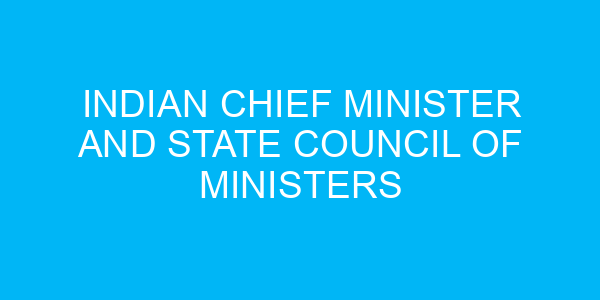96. The Chief Minister is responsible for ensuring the smooth functioning of the state judiciary, state bureaucracy, and state police. This reflects the Chief Minister’s role in maintaining:
a) Law and order in the state
b) Judicial independence in the state
c) Administrative efficiency in the state
d) Public trust in the state institutions
97. The Chief Minister is accountable to the Legislative Assembly, which represents the voice of the people. This accountability ensures:
a) The transparency of the government’s actions
b) The protection of minority rights
c) The preservation of cultural heritage
d) The promotion of international diplomacy
98. The Chief Minister is responsible for allocating portfolios to the ministers in the State Council of Ministers. This allocation is based on various factors, including:
a) Ministers’ qualifications and expertise
b) Ministers’ loyalty to the Chief Minister
c) Ministers’ popularity among the public
d) Ministers’ financial contributions to the party
99. The Chief Minister is responsible for ensuring the effective functioning of the State Council of Ministers, which is collectively responsible for the governance of the state. This collective responsibility ensures:
a) The stability of the government
b) The promotion of social justice
c) The protection of human rights
d) The preservation of cultural diversity
100. The Chief Minister represents the state in various forums and meetings, including Union Cabinet meetings, Governor’s Office, President’s Office, and Legislative Assembly. This representation signifies the Chief Minister’s role in:
a) Maintaining federal harmony
b) Balancing power between the state and central government
c) Ensuring effective communication between different levels of government
d) Promoting inter-state cooperation



